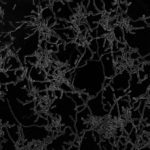Lien vers Pubmed [PMID] – 25190251
Lien DOI – 10.1101/cshperspect.a019695a019695
Cold Spring Harb Perspect Med 2014 Sep; 4(12): a019695
Fungal pathogens must assimilate local nutrients to establish an infection in their mammalian host. We focus on carbon, nitrogen, and micronutrient assimilation mechanisms, discussing how these influence host-fungus interactions during infection. We highlight several emerging trends based on the available data. First, the perturbation of carbon, nitrogen, or micronutrient assimilation attenuates fungal pathogenicity. Second, the contrasting evolutionary pressures exerted on facultative versus obligatory pathogens have led to contemporary pathogenic fungal species that display differing degrees of metabolic flexibility. The evolutionarily ancient metabolic pathways are conserved in most fungal pathogen, but interesting gaps exist in some species (e.g., Candida glabrata). Third, metabolic flexibility is generally essential for fungal pathogenicity, and in particular, for the adaptation to contrasting host microenvironments such as the gastrointestinal tract, mucosal surfaces, bloodstream, and internal organs. Fourth, this metabolic flexibility relies on complex regulatory networks, some of which are conserved across lineages, whereas others have undergone significant evolutionary rewiring. Fifth, metabolic adaptation affects fungal susceptibility to antifungal drugs and also presents exciting opportunities for the development of novel therapies.

